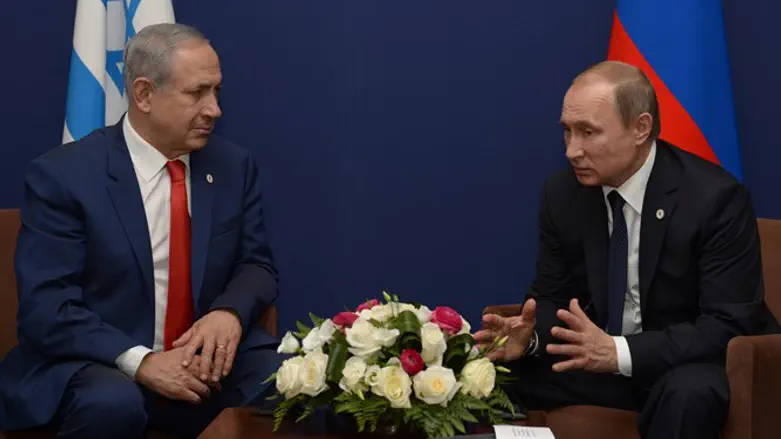
The IDF has approached the Russian Defense Ministry to request that new coordination procedures be developed now that Russia has stationed S-300 anti-aircraft missiles in Syria, Haaretz reported on Sunday.
News of the IDF request first appeared in the Russian newspaper Izvestia.
Earlier this month, Russia's defense ministry sent an S-300 missile system to its naval facility in the Syrian city of Tartus, in a measure meant to bolster its security.
The S-300 system is a series of long range surface-to-air missile systems that was developed to intercept ballistic missiles and which has already made headlines in the context of Russia’s sale of the system to Iran.
Russia's sale of the S-300 systems to Iran, originally agreed upon in 2007, has been repeatedly delayed due to Western pressure given that UN nuclear sanctions ban the delivery to Iran.
“In the context of the hotline between [Israel and Russia], the Israelis sent us a request to develop new procedures and open-fire rules to be added to the existing coordination mechanism,” a Russian source told Izvestia on Sunday, adding that the request was made in an effort to prevent Russian missile systems in Syria from firing at Israeli aircraft by mistake.
“We are currently developing our response and will send it to the Israelis in the context of the agreed upon procedures between the [two] sides,” the source said, according to Haaretz.
Alex Tenzer, an expert on Russian-Israeli relations, told Haaretz that the reinforcement of Russian forces in Syria and particularly the stationing of the S-300 missiles is part of a Russia battle against the United States, and not against Israel.
Israel and Russia have a joint mechanism to coordinate military operations in Syria, and in particular concerning the use of Syrian airspace. The mechanism was agreed upon during a meeting between Prime Minister Binyamin Netanyahu and Putin late last year.
The S-300 system is considered one of the most advanced aerial defense systems in the world. Beyond the system’s advanced radar, which is capable of identifying and tracking a large number of targets at a particularly long range, the anti-aircraft missiles themselves have a 200-kilometer (125-mile) range.
In recent years, several reports had appeared regarding Russia’s intention to transfer S-300 missiles to the Syrian army, noted Haaretz. On each occasion, Israel applied heavy pressure on Russia at the highest levels, including talks that on Israel’s behalf involved former President Shimon Peres, current President Reuven Rivlin and Netanyahu with both Putin and with his predecessor, Dmitry Medvedev.
As of now, Russia has not provided the missile system to the Syrian army.
(Arutz Sheva’s North American desk is keeping you updated until the start of Sukkot in New York. The time posted automatically on all Arutz Sheva articles, however, is Israeli time.)
